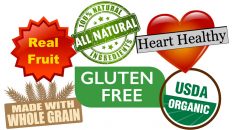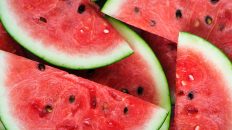By Mark Faries, PhD
Howdy, I am Dr. Mark Faries and I am dedicated to separating fact from fiction regarding topics of exercise and healthful eating.
Because we’ve been trained to assume that meat is the only way to get our essential amounts of protein, it’s common for many people to believe that we cannot get enough protein eating plant-based foods. But, is this fact or fiction?
First, let’s touch on a little chemistry to understand what we’re talking about with protein and its importance to our health.
Protein is a major macronutrient we get from food. Macronutrients are substances that provide energy which is commonly measured as Calories.
When you eat a piece of meat or some kidney beans, you’re consuming a bunch of protein macronutrients.
Amino acids are chemical compounds that combine to form the building blocks of a variety of different proteins. We use amino acids to make proteins to help our body break down food, grow, repair tissues and perform many other functions.
Protein is composed of amino acids that can generally be categorized as essential and non-essential. The nine essential amino acids are very important, because the body does not make them. Rather, we must consume them through our foods. A food that contains all nine is commonly referred to as a complete protein.
Meat does contain these essential amino acids, thus there is an assumption that meat is the only complete protein.
The fact is that many plant-based foods are complete proteins too. Let’s take a look at one of my favorite salads that I make at home. It’s got spinach, kidney beans, fresh broccoli, quinoa and peas. Based on World Health Organization guidelines, I can get nearly all of my total daily need of essential amino acids with just this one all-plant meal!
There are many other plants have all nine essential amino acids such as tomatoes, green peppers, corn, lettuce, celery, cucumbers, oats, brown rice, carrots and pinto beans.
In addition, plant-based foods provide numerous additional nutritional advantages, such as vitamins and minerals.
So, by looking at the protein and essential amino acid content in plant-based foods, we must conclude that the belief that we cannot get enough protein by eating vegetables… is fiction.
Protein and Amino Acid Requirements in Human Nutrition. World Health Organization. 2007. http://whqlibdoc.who.int/trs/WHO_TRS_935_eng.pdf.
USDA National Nutrient Database for Standard Reference at http://ndb.nal.usda.gov/ndb/.





